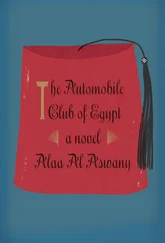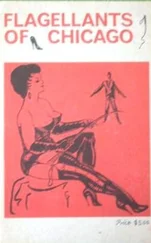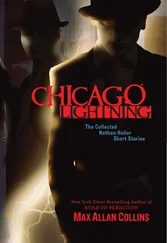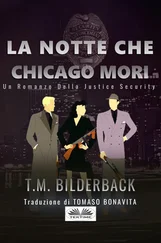The Vietnam War ended and so did the revolution. Most of the comrades joined the system they had rebelled against only yesterday. They got jobs, had families and children, and some of them made vast fortunes. They all changed their way of thinking, except for John Graham, who was now over sixty but who remained loyal to the revolution. He didn’t marry because he did not believe in the institution of marriage, and he couldn’t shoulder the responsibility of bringing children into this rotten world. His faith was never shaken in the possibility of creating a better world if Americans got rid of the capitalist machine that controlled their lives. Despite his advanced age he continued to be active in various leftist organizations: the Friends of Puerto Rico, the American Socialist Union, the Vietnam Generation, the antiglobalization movement, and others. He has paid an exorbitant price for his struggle. He’s ended up a lonely old man — no family and no children. He had two relationships that didn’t work out and left him with deep emotional wounds. He had two bouts of depression and was institutionalized and tried to commit suicide. But he got over the crises, not because of medication or therapy, but thanks to an internal solid core, which he called on and which didn’t fail him. He also got over his problems thanks to his love for his work and his total immersion in it. For despite his controversial political affiliations and his problems, Graham is one of only a few professors in the science of medical statistics, and he has published dozens of important papers throughout the world. He considered statistics to be a creative art depending on inspiration more than just math. He had a favorite sentence with which he began his lectures to graduate students: “Statistics has suffered a historical injustice brought about by mediocre bourgeois minds that consider statistics merely as a means of tallying profit and loss. Keep that in mind: statistics is a truthful means of viewing the world; it is simply logic flying with the two wings of imagination and numbers.”
Despite Graham’s tremendous popularity at the university as a nice personality, an extraordinary scholar, and a great lecturer, he rarely had genuine friendships: those colleagues sympathetic to him considered him a kind of funny, interesting folkloric personality, eliciting curiosity. But they also kept a distance between him and themselves. As for conservatives, like George Roberts, they shied away from him and attacked him publicly as an atheist, an anarchist, and a communist who espoused evil, subversive ideas. Thus John Graham’s life proceeded, approaching its expected end: the old, leftist university professor who would live and die alone, with the most important events in his life behind him. He began to feel, day after day, that his ties to the world were eroding. He tried to imagine what the end would be like: How was he going to die? Perhaps in his office or while giving a lecture, or maybe he would have a heart attack at night and his neighbors would find out that he was dead a few days later.
Two years ago, however, a surprise had changed his life. The antiglobalization movement held a rally in the park and John Graham delivered a scathing speech against neocolonialism hiding behind multinational corporations. He received a loud, long round of applause on account of his advanced age, his enthusiasm, and his reputation as an old warrior who had kept the faith. Graham left the podium carrying his papers, returning the greetings of those present and shaking their hands. It was then that a beautiful young black woman approached him. She introduced herself as Carol McKinley and said she wanted him to clarify some points in his speech. What she asked for required only a few minutes, but John and Carol began talking and soon seemed unaware of anyone around them. They stayed together from midafternoon until midnight. They went to three different bars and drank and talked the whole time. Graham became attracted to her at a phenomenal speed. What was more surprising was that she fell in love with him despite a whole lifetime of difference in age. He appeared irresistibly attractive to her, with his gray hair, his leftist ideas, his unshakable belief in his principles, and his intelligent sarcasm that expressed his disdain for things that ordinary men clamored for. She had just been through a long, failed relationship that had left her with deep sorrow and a five-year-old son. When Graham asked her weeks later to move in with him, she didn’t seem surprised. She looked at him with a calm smile and said, “I love you, but I cannot leave my son.”
“You won’t have to leave him. He’ll come and live with us.”
“Are you sure you’ll accept him?”
“Yes.”
“Do you know what it means to live with a child who is not yours?”
“I know.”
“I don’t want you to regret it later.”
“I won’t.”
“Do you love me that much?” They were walking along the shore of Lake Michigan. It was bitterly cold and ice covered everything. They were all alone, as if they were the only two people in Chicago. Graham stopped her, held her shoulders, then looked at her for a long time as his hot breath created a constant cloud of steam. He asked her in a serious tone of voice, “You want an answer to your question?”
“Please.”
“Now or later?”
“Now. Right away.”
He hugged her hard and gave her a long kiss on the mouth, then smiled and said, “That’s my answer.”
“It’s a convincing answer,” she said, laughing. Graham loved little Mark, who grew attached to him, and the two spent a lot of time together. Mark found in him the father he was deprived of, and Graham found that their relationship satisfied his instinctive affection for children. More important, he loved Carol as he hadn’t loved a woman before. She was his enchantress, muse, lover, friend, and daughter. He lived with her the most beautiful love experience in his life; so much so that sometimes he imagined that her presence with him was not real, that it was just a dream from which he might wake up suddenly to not find her. The difference in race, however, brought them many problems: when they embraced or engaged in intimate talk or held hands in public, it provoked racist feelings among many people, such as some waiters in certain restaurants and bars who treated them coldly and insolently. They also experienced some prying inquisitive and disapproving glances in public places. This even applied to some of Graham’s more conservative neighbors on his street when they met them by chance; the neighbors would address him and totally ignore her, as if she were invisible to them. Many a time did a restaurant owner refuse to seat them with the pretext that the kitchen was closed even though other customers were at the very same moment waiting for the food they had ordered. On weekends, Graham and Carol were used to being on the receiving end of hurtful comments from drunks on the street, like, “Black and White!” (in reference to the famous scotch brand).
“Why don’t you go sleep with a black person like you?”
“Do you like making it with Negroes, Grandpa?”
“How much did you pay for this slave girl?”
Even at the University of Illinois where he worked, there was a regrettable incident. One morning, Carol had to drop in on Graham at school. Unfortunately she met George Roberts, whom she didn’t know. She greeted him in a normal manner and asked him where John’s office was. She was surprised when he asked her, “Why do you want Dr. Graham?”
“I’m his girlfriend.”
“His girlfriend?” asked Roberts loudly, clearly expressing his surprise to make the insult complete. Then he fixed her with a scrutinizing glance from head to toe and said, “Dr. Graham’s office is at the end of the corridor, room 312. But I don’t believe for a moment that you are his girlfriend.”
Читать дальше
Конец ознакомительного отрывка
Купить книгу












